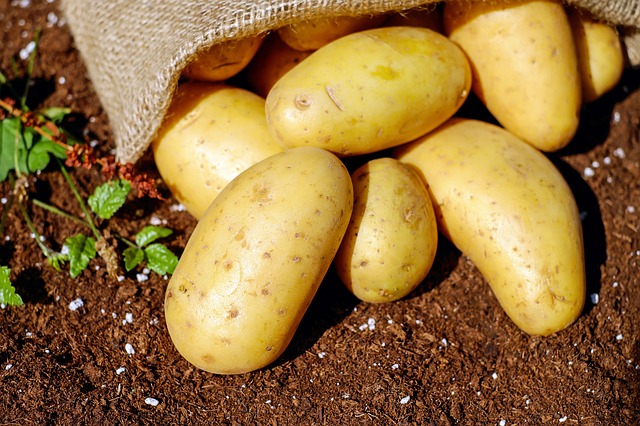[deck]In future potato growers will have to rely on a mix of products to limit potato sprouting in stores.[/deck]
Currently CIPC is used as a sprout suppressant on more than 80 per cent of potatoes stored in the UK. However, the future of CIPC remains uncertain as the European Food Safety Agency’s recommendation is for non-renewal, which could leave many growers lacking options in terms of short and long term potato storage.
While CIPC remains the most effective method for reducing sprouting in storage, AHDB has been carrying out trials on alternative suppressants and early results have shown that some of these options work well, particularly when combined. This latest research builds on previous work on sprout suppression which has been recognised as a major issue due to the industry’s reliance on CIPC.
Uncertain Future
AHDB crop storage senior scientist Adrian Briddon explains: “It looks likely that in the future growers won’t be able to rely on one active product, but instead may need to combine two or three chemicals, such as maleic hydrazide and DMN, to get the same result. For example in the first year of trials, combinations of active substances were needed to control sprouting in the most demanding conditions, without CIPC.
Maleic hydrazide, a growth regulator also used for sprout suppression was recently re-approved for use, but with changes to its label that may reduce the extent of its use in some markets.
DMN is effective in both pre-pack and processing stores; and is of particular interest because in the USA it is also registered for use on seed. So, as well as sprout control for ware potatoes, there may also be interest in using it to modify stem and progeny tuber numbers.
In the first year trial, sprouting was virtually completely controlled by the application of DMN to crops pre-treated with maleic hydrazide after storage for nine months at 9 degrees C.
“In the first year, DMN performed very well, with sprout control on a par with CIPC, under the conditions tested. But it’s not yet available in the UK. It is available elsewhere in Europe though, so we hope UK approval will be soon.”
Unfortunately the new generation of sprout suppressants tend to be more costly than CIPC, so the cost of production could increase for many growers, unless they can reduce their overall inputs.
Dormant Genetic Potential?
Another strand of AHDB research focusing on dormancy could offer some growers the opportunity to do just that.
The dormancy characteristics of 30 or so potato varieties are currently being monitored at AHDB’s Sutton Bridge stores, to assess which remain dormant longest and so which offer growers the greatest chance of reducing chemical inputs and costs.
“Although our understanding of potato dormancy is incomplete,” Adrian explains, “we know that some varieties will remain dormant for a short period, perhaps just a few days, whereas others will do so for months. This work will give us a better understanding of which commercially popular varieties can last longest in store without sprout suppressant being applied.
“King Edward for example, breaks dormancy very quickly and so using sprout suppressants is often a must. On the other hand, if you grow Nectar, you have a greater chance of reducing chemical use in store as it will remain dormant far longer.
“If we can identify varieties with reliable, long periods of dormancy, the industry has the option to reduce their use of sprout suppressants by growing varieties that are better suited to growers’ stores.”
The research into alternative options to CIPC will run for two more seasons with the aim of providing growers with alternative sprout suppressant strategies as chemical use is further restricted.











